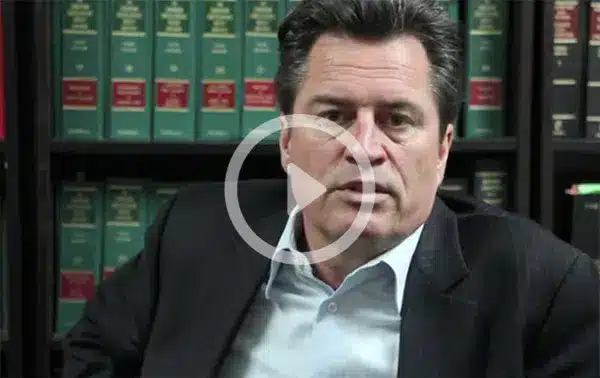SPEAK WITH A LAWYER NOW
Schedule a free over 80 mg case review
Over 80 mg
According to the Criminal Code, a charge of over 80 in Canada is all about having a blood-alcohol level that is higher than what is legally allowed. Anyone with more than 80 milligrams of alcohol per 10 decilitres of blood may face a criminal charge of Driving Over 80.
Meaning of Driving Over 80 mg
There is no exact amount of alcohol consumed per individual that can define the point at which they will be “over 80”. Numerous factors come into play, including height, weight, the timing of alcohol consumption, and consumption rate. If you are charged, always contact a Criminal Lawyer before making any statements. It is always better to be safe than sorry if you are unsure.
Our experienced trial lawyers will assist you in the best possible way.

Penalty for Driving over 80 mg
Individuals who are convicted of Driving Over 80 face serious consequences. Some of the consequences include the following:
Having a criminal record for life
Dealing with the impoundment of a vehicle
Facing 90-day license suspension (or more)
Paying a fine of $1,000 to $2,000
Serving jail time for repeat offenders
Experiencing dramatic increases in insurance premium
Having to install the mandatory ignition interlock device
Dealing with possible job loss if the job includes driving a motor vehicle
Defending and Legal Issues
Defending a Driving over 80 Charge
Note that being apprehended or charged for Driving Over 80 does not mean that you are automatically guilty or will automatically face conviction. The judge will decide who is guilty.
Your lawyer can develop many legal defences to avoid a conviction for you. The driver is often deemed not guilty, more so when the arresting officer did not strictly follow the rules of collecting evidence. If the evidence was not collected using the proper protocol and procedures, it is possible that the rights of the arrested person were violated. Arrests made with mistakes in the protocol can be deemed unlawful or without basis. This is a strong defence that an experienced DUI lawyer can make.
Driving over 80 and Legal Issues
Forming a solid defence for a charge of Driving Over 80 can be tricky, especially if there’s a DUI with bodily harm involved. There are many things to consider!
One important thing is that no matter when you are arrested and the circumstances surrounding your arrest, you have the right to legal counsel. The police must inform you that you have the right to get a lawyer, or they should get a lawyer for you if you don’t have one available. You must be allowed to speak in private to your lawyer. The police should respect your right to a lawyer as soon as possible. Unreasonable delays in getting you access to legal counsel can are all valid defence.
Breathalyzer Tests and Driving over 80
Below are situations when the police can ask a driver to take a breathalyzer test:
• The police smell alcohol on the person’s breath
• The police have determined that the driver has care and control of a vehicle
• The person has been arrested for impaired driving
• The person admits to recent alcohol consumption to the police
Note that after the officer has informed the person of needing to provide a breath sample, refusal from the driver to give a breath sample or refusal to cooperate with getting the sample may result in a charge of Refusing A Breathalyzer.
Over 80 vs Impaired Driving
Over 80 and impaired driving are similar criminal charges but are very different.
Impaired driving means the following:
• The police allege that the president’s ability to drive is impaired
• The person in question has consumed an alcoholic beverage regardless of the level of blood-alcohol
In contrast to the above, Driving Over 80 means the following:
• Police has tested the driver and found that the driver’s blood-alcohol level is more than 80 milligrams per 10 decilitres of blood
• Over 80 is based on the blood-alcohol level regardless of the person’s ability to drive
For someone to be charged with impaired driving, there must be evidence that the person was not driving normally; whereas, for someone to be charged with over 80, no evidence of abnormal driving is needed.A driver can charged with just one or both of these offences.
If a person’s blood-alcohol level exceeds 80 milligrams per 10 decilitres, they could be charged with Driving with Excess Blood Alcohol, a criminal offence in Canada. One may face criminal charges if one’s blood-alcohol content exceeds the legal limit.
The amount of alcohol someone consumes does not determine whether or not they will be considered over the legal limit for driving. Various factors, like height, weight, when alcohol was consumed, and how quickly it was consumed, all come into play when determining an individual’s blood alcohol concentration. If you are ever charged with a DUI, you must speak to a criminal lawyer before making any statements. It is better to be safe by knowing your rights.
Situations that call for a breathalyzer test include:
- The officer detected a strong odour of alcohol on the individual's breath.
- The police concluded that the driver was in charge and was responsible for the car.
- The person being arrested for operating an automobile when influenced by alcohol or drugs.
- Admitting a current consumption of alcohol.
Contact Calvin Barry When Caught Driving with Over 80mg
Creating a compelling argument to protect oneself from a Driving Over 80 allegation can be difficult, especially if a DUI with physical damage is part of the accusation. A myriad of factors must be taken into account!
No matter the situation of your arrest, you have the right to have legal representation. The police should make clear that you have the right to a lawyer and even provide one if you do not have one. They must grant you the opportunity to talk to your attorney in private. The law does not tolerate unreasonable delays in getting you access to legal advice, which can be used as an argument in your defence.
Crafting a convincing defence against a charge of driving at an excessive speed can be a difficult challenge if an additional charge of impaired driving causes bodily injury. It is essential to consider all the details and aspects of the case to make the strongest possible argument.
Our lawyers can work to protect your rights by arguing that the evidence collected against you was not done lawfully or validly. The evidence might be admissible in court if the officer followed the correct procedures. This means the court may decide that you are not guilty because the evidence against you was improperly collected.
10 FAQs about Impaired Driving over 80mg
1. What does 'Over 80 mg' mean in the context of DUI charges in Canada?
‘Over 80 mg’ refers to having over 80 milligrams of alcohol in 100 millilitres of blood, which is the legal limit for blood alcohol concentration in Canada. If you’re facing such charges, the specifics of your case are critical in determining the best course of action. Contact us for a free consultation to discuss your situation in detail.
2. What are the potential penalties for an 'Over 80 mg' DUI offence?
The penalties for an ‘Over 80 mg’ offence can be severe, including a criminal record, vehicle impoundment, license suspension, fines, and even jail time for repeat offenders. To understand how these might apply to you and to seek a defense that could mitigate these penalties, fill out our form for legal advice.
3. How can a lawyer defend me against an 'Over 80 mg' charge?
4. Is it possible to challenge the results of a breathalyzer test in Canada?
Yes, breathalyzer results can be challenged on several grounds, including the operation of the device, the handling of the test, and the timeline of the testing procedure. To explore this possibility, reach out for a consultation with our experienced DUI lawyers.
5. What should I do if I've been charged with an 'Over 80 mg' offence?
If you’ve been charged, it’s crucial to act quickly. Avoid making any statements before speaking to a lawyer, as this can significantly impact your case. Contact us immediately to ensure your rights are protected from the start.
6. Can an 'Over 80 mg' charge affect my employment in Canada?
Yes, such a charge can lead to job loss, especially if your job requires driving. It’s important to address these charges effectively to protect your career. Discuss your employment concerns with us during a free consultation.
7. What is the difference between 'Impaired Driving' and 'Over 80 mg'?
‘Impaired Driving’ involves the physical and mental impairment to drive, while ‘Over 80 mg’ is strictly based on blood alcohol concentration. You could be charged with one or both offences. Understanding these distinctions is crucial for your defense, and we can help clarify them for you.
8. How long will an 'Over 80 mg' charge stay on my record?
An ‘Over 80 mg’ conviction can result in a criminal record for life. To avoid or minimize the long-term consequences, seek legal advice as soon as possible.
9. What are my rights if I'm stopped by the police for an 'Over 80 mg' suspicion?
You have the right to remain silent and the right to legal counsel. It’s important not to incriminate yourself and to speak to a lawyer immediately. If you’re unsure of your rights, contact us for a free case review.
10. How much will it cost to hire a lawyer for an 'Over 80 mg' DUI defence?
The cost can vary depending on the complexity of your case. We offer a free initial consultation to discuss your case and provide a clearer picture of potential costs. Get in touch to learn more about our fees and services.
Client Reviews
Our clients praise us for our outstanding results, personable service and expert knowledge. Here are a couple of things some of them had to say:
Thank you!
Read Our News & Blog Content
Latest News – Toronto’s source for criminal law updates, alerts, news and analysis from leading lawyers in the field.

Concerning Drinking And Driving Statistics In Canada For 2022 (Part 2 Of 3)
Drinking and driving issues are Canada’s most significant contributors to public health and safety problems. This shows that drunk driving and impaired driving do not pick a place and time and that they are ongoing social problems that need to

Concerning Drinking And Driving Statistics In Canada For 2022 (Part 1 Of 3)
Unfortunately, deaths and accidents caused by drinking and driving continue to be a major public safety issue in Canada. These violent deaths cause immense pain for many families, often more than the combined number of hostage situations, armed robberies, and

Canada’s DUI Laws For Cannabis – Know Your Facts
Cannabis Use and Driving: Zero Tolerance for New and Underage Drivers Operating a vehicle under the influence of cannabis is illegal, especially for the young, novice, or commercial drivers. If any trace of cannabis is found in your system while
Contact Calvin Barry Today.
Contact an experienced criminal defence lawyer in Toronto to fight for your case.